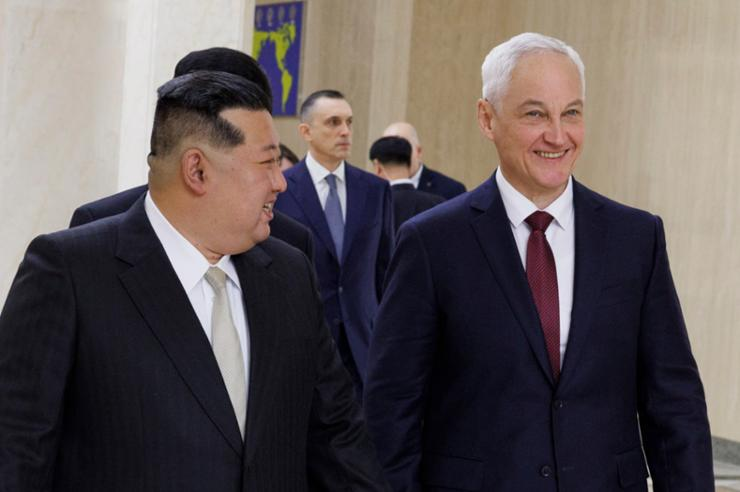
Seoul: Russian Defense Minister Andrei Belousov has departed from Pyongyang after a two-day visit, during which he held discussions with North Korean leader Kim Jong-un, as reported by North Korean state media on Sunday. Belousov and his accompanying defense ministry delegation left on Saturday via Pyongyang Sunan International Airport after visiting historical sites in the city, including the Liberation Tower and Mangyongdae.
The minister’s visit began on Friday, marked by high-level talks with North Korean military officials, amid increasing military collaboration between the two nations. During their meeting, Kim Jong-un expressed support for Russia’s military actions in Ukraine.
On Saturday, the delegation visited the Liberation Tower in Moranbong, where they laid flowers before their departure. This monument was established in 1946 to honor the Russian soldiers who fought for North Korea’s liberation from Japanese colonial rule during World War II. Additionally, Belousov visited Mangyongdae, the birthplace of North Korea’s founder Kim Il-sung, where he signed a guest book with wishes for “welfare and peace” for the North Korean people and a “grand victory” for the nation in its efforts to build a strong state.
North Korean Defense Minister No Kwang-chol and Jong Kyong-thaek, director of the military’s General Political Bureau, were present to see the Russian delegation off at the airport. The strengthening of military ties between North Korea and Russia comes in the wake of a major defense treaty signed in June, which stipulates military assistance “without delay” if either nation faces an attack.
North Korea has reportedly deployed thousands of troops to support Russia in its conflict in Ukraine, with assessments from South Korea and the U.S. suggesting some of these troops may already be engaging in combat. While no formal agreements were disclosed during this visit, discussions likely included the possibility of increased arms transfers or troop deployments from North Korea to Russia, as well as potential incentives from Russia in return.
